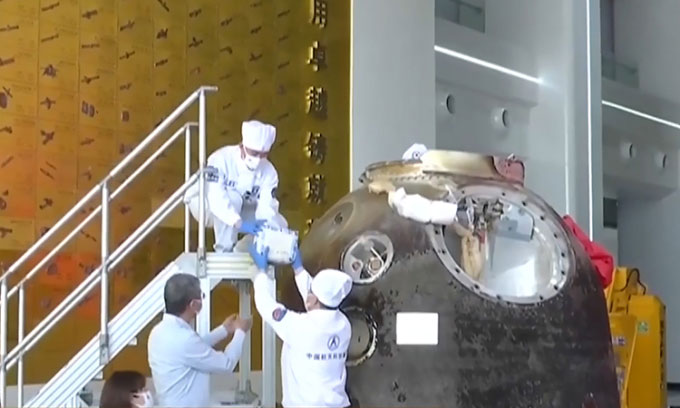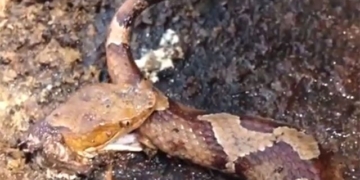Approximately 12,000 seeds brought back to Earth by the Shenzhou spacecraft from the Tiangong space station will be planted for research and breeding purposes.
After a record mission lasting six months at the Tiangong space station, the Shenzhou spacecraft safely landed in the Inner Mongolia Autonomous Region on April 16. In addition to three astronauts, the flight returned with 73 kg of items, including 12,000 seeds of rice, oats, edible mushrooms, greens, herbs, and roughage for livestock such as alfalfa and clover.

A box of items being unloaded from the Shenzhou spacecraft after returning to Earth. (Photo: CGTN)
According to the Chinese Academy of Agricultural Sciences, the space environment, characterized by radiation and microgravity, helps to mutate the genes of seeds to create superior varieties. This will contribute new germplasm resources and ensure national food security.
The seeds on the spacecraft were carefully selected to ensure they can germinate normally upon returning to Earth.
“According to our breeding goals, we have carefully selected seeds expected to be high-quality, protein-rich, and capable of withstanding poor environmental conditions,” said expert Yang Hongshan from the Chinese Academy of Agricultural Sciences. “The time for space seeds to develop in agricultural land and be bred into new varieties varies. It takes more than 10 years to breed a new variety of alfalfa, while oats have a shorter cycle of two to three years.”
The alfalfa varieties brought back by the Shenzhou spacecraft are scheduled to undergo field planting trials this year or next. Alfalfa has high yield and protein content, with the ability to thrive in diverse environmental conditions, making it crucial for China’s livestock industry and food security. This East Asian nation requires 6 million tons of alfalfa for livestock feed each year, with one-third currently imported.
Since beginning to breed seeds in space in 1987, China has successfully cultivated approximately 260 new plant varieties, including rice, soybeans, and vegetables, across 2.4 million hectares of land. It is estimated that space breeding has directly generated economic benefits worth 200 billion yuan, equivalent to 29.8 billion USD.


















































